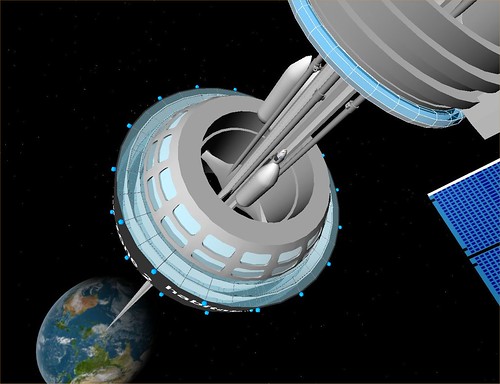
An enormous process of politics and money unfolded over much of 2011, with NASA's planned James Webb Space Telescope (JWST), the successor to the Hubble Space Telescope, hanging in the balance. With money tight everywhere and Congress disputing the value of funding science, it appeared during the summer that the next-generation space scope might be ingloriously axed. And then you made your voices heard, contacted representatives, senators, and the White House, and in late 2011, Congress agreed on a new funding bill for NASA that preserves JWST for the 2012 fiscal year. Congratulations on taking a stand in the name of science!
Science has faced a tough future for some time in this country. Most Americans live in a 2-D world, focused on the activities of their daily lives and utterly oblivious to the cosmos around them or what it means. The search for the ordinary in our day-to-day existence is what dominates most people's thinking. Too often, people forget that the drive to know, to understand, to comprehend the reality of the universe around us is what separates Homo sapiens from lower orders of primates.
Even if they admit the value of understanding how the universe works, many people devalue such knowledge during hard economic times, when moremundane situations rise up to dominate thinking. When times are hard, it doesn't matter to many that NASA's budget is less than 1 percent of the federal budget. To some, it seems superfluous, even though the moment after they complain about useless spending on science, they pull out their cellphones--a technological byproduct of the space program--and commence a meaningful conversation about which brand of diced chicken to buy. Oh well.
But enough complaining. JWST lives on, still slated for a 2018 launch. Although the new compromise bill preserves Webb (which was running over budget), it also cuts by half the Obama administration's desire to fund a program of commercial space taxis. Altogether, $3.8 billion was authorized for human space exploration in 2012, including $1.8 billion for a heavy-lift rocket and $1.2 billion for a capsule to transport astronauts to the Moon and other destinations in the inner solar system.
NASA's science programs will receive $5.1 billion next year, including $530 million for JWST. For those who don't remember, the long planned scope is a successor to Hubble in that it is a huge observatory outside Earth's atmosphere, but it is different in that it's optimized for infrared observations and will focus on questions of cosmic origins--sorting out how the first stars and galaxies formed in the early universe. This is one of the major open questions in cosmology.
So a happy ending--for now--for JWST. Now if we just could get all Americans, and others around the world, to appreciate, understand, and support other programs in astronomy and science. I know--one step at a time.
Yours truly,
David J. Eicher Editor
Eicher, David J.
Source Citation
Eicher, David J. "NASA saves the Webb Space scope." Astronomy Mar. 2012: 6. General Science Collection. Web. 9 Mar. 2012.
Document URL
http://go.galegroup.com/ps/i.do?id=GALE%7CA282327373&v=2.1&u=22054_acld&it=r&p=PPGS&sw=w
Gale Document Number: GALE|A282327373

No comments:
Post a Comment